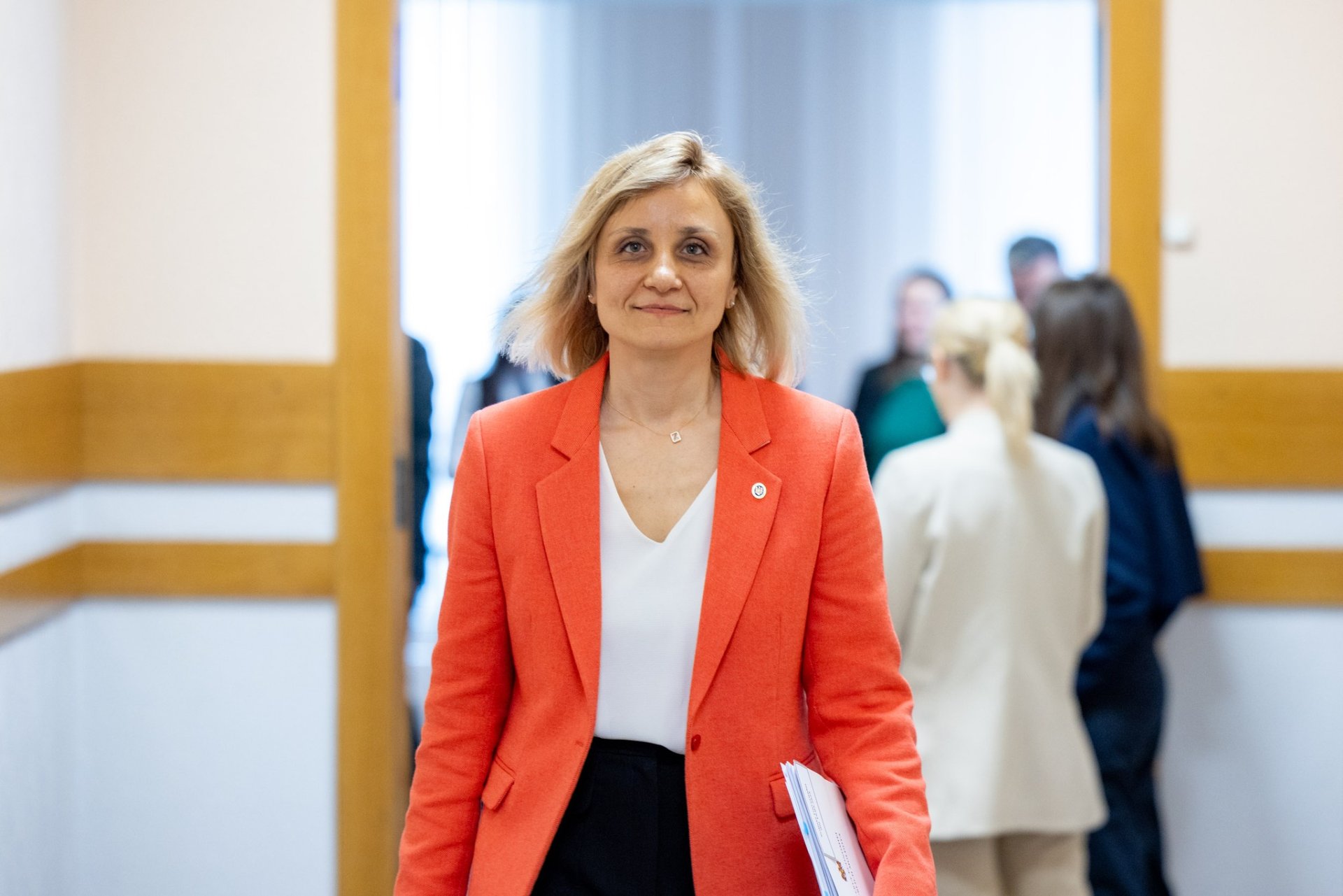
Deputy Prime Minister: Opening of Moldovan market for EU animal-origin products to be gradual and balanced
The opening of the Moldovan market for animal-origin products from the EU will be gradual and balanced starting in 2026. Deputy Prime Minister, Minister of Economic Development and Digitalization Doina Nistor made the statement in an interview given exclusively to MOLDPRES, in light of the European Union expanding access for Moldovan products to the EU market, while Moldova has agreed to improve access conditions for certain agri-food products from the EU.
"The opening of the Moldovan market for animal-origin products from the EU will be gradual and balanced, starting in 2026. For frozen pork, an initial quota of 500 tons is proposed for 2026, with annual increases of 150 tons until 2028 and a rise of 200 tons in 2029, reaching a total of 1,000 tons. The mechanism is similar for poultry," stated Doina Nistor.
Furthermore, according to the head of MDED, in the dairy sector, the offer targets two tariff positions: milk and cream with a fat content above 3%, with a cumulative quota of 1,000 tons, and butter, for which a progressive quota of 500 tons is proposed (starting with 200 tons in 2026 and annual increases of 100 tons).
"This commitment reflects a realistic and sustainable approach to integration into the European single market. At the same time, it addresses the concrete needs of local meat and dairy processors, who periodically face raw material shortages, either due to swine fever or high-fat butter shortages," stated the Deputy Prime Minister.
According to the official, the quantities proposed by Moldova have been agreed upon with local producers. Additionally, the gradual liberalization provides them with the necessary time to adapt ahead of the anticipated EU accession in 2030, argues Doina Nistor.
"It is a mutually beneficial measure: it offers predictability to Moldovan farmers and strengthens EU producers' access to a market undergoing modernization," stated the official.
The Deputy Prime Minister also added that the decision to revise the DCFTA Agreement contains a safeguard clause, allowing for the temporary suspension of trade preferences in case of massive imports that could affect local producers.
In late July, the European Commission and the Moldovan Government concluded negotiations on new provisions of the Deep and Comprehensive Free Trade Agreement (DCFTA). As a result, the EU has expanded access for Moldovan products to the EU market. Thus, under the EU's decision, access increases for plums, apples, table grapes, and cherries with expanded tariff quotas. Additionally, imports of grape juice, tomatoes, and garlic are fully liberalized.
Respecting the extension of reciprocal access to agricultural markets, Moldova has agreed to improve access conditions for certain agri-food products from the EU.
PHOTO // Modernization works at Chisinau Station reach almost 80-per cent progress
One month passes after joining Single Euro Payments Area: Moldovans save 1.4 million euros on transfer fees
New fiscal package to stimulate Moldova's economy: Action and Solidarity Party proposes maintaining zero profit tax rate, increased deductions for education
National Bank awarded at Romanian PR Award 2025 for MIA project
IMF expert team visits Chișinău for annual consultations
IMF provides Moldova with technical assistance in tax administration
Italy's Ambassador in Chisinau says Italian companies can take advantage of opportunities of Moldova's new European path
Moldova's sparkling wines in global elite: 20 medals, place in top 10 at Effervescents du Monde 2025
VIDEO, PHOTO // BNM launches commemorative coin dedicated to Queen Marie
Bridge over Prut in Ungheni - beginning of comprehensive modernization process
Moldova marks 32 years since introduction of national currency
National Vine and Wine Office awarded in London and Bucharest for effective promotion strategies
Agriculture minister in Istanbul: Moldova supports Zero Waste goal and investments in sustainable food systems
Moldovan energy sector's priorities, reforms planed for 2025 discussed at Energy Ministry
Meeting between Deputy Prime Minister for Reintegration and Head of Council of Europe Office in Chișinău
PHOTO GALLERY // Journalism and democracy in pictures: Media Forum 2025 in Chisinau
Speaker welcomes Bucharest residents' commitment to democracy and community projects
Head of State calls for modernization of media legislation: We can no longer defend democracy with tools from decades ago
President at Media Forum: We need effective partnership between institutions, press, citizens in joint effort to protect democracy
Reorganization of small schools proposed to improve education quality in Moldova; 73 institutions might be affected by changes
National power system operates stably and fully covers energy consumption
Over 200 km of regional roads repaired in 2025
Parliament speaker in Chicago says Moldovans' community in North America united, energetic, one of best ambassadors of Moldova
BTA: National Social Security Institute Unanimously Approves 2026 State Social Security Budget
China reaffirms support for Moldova's European integration, promises to expand economic cooperation
VIDEO // Moldovan PM answers citizens' questions: "I want changes in our country to become visible"
Strengthening of USA-Moldova relations: Moldovan parliament speaker, foreign affairs minister in Chicago to meet Diaspora, investors, American officials
Moldovan president revokes state distinctions awarded to president of Judo Federation, coach
Moldova opens door to Romanian investors: up to 75 per cent financial support for industrial projects
BTA: Scope Ratings Agency Confirms Bulgaria's "A-" Credit Rating, Outlook Stable

